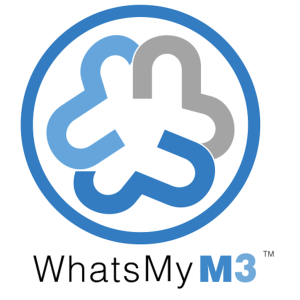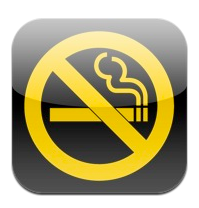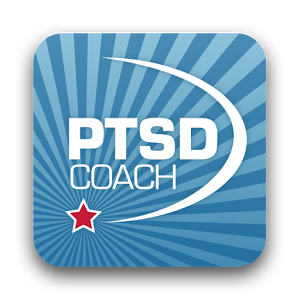You’d be hard pressed to find a black person who does not own a smartphone. The devices are as common as shoes and basically a handheld computer. We can’t seem to live without these devices. But smartphones can also be valuable tools in maintaining our mental health.
Apps help the average person manage situations and solve problems. There are literally millions of apps available and hundreds of for monitoring you health. The owner of a smartphone can use the device to evaluate everything from simple Monday morning blues to such complex maladies as bipolar disorder and addiction. The webpage at the Zur Institute lists hundreds of mental health apps.
Using these apps can help you to evaluate your mental and emotional state and lead you to getting help. One of these available apps is known as WhatsMyM3.
 WhatsMyM3 is not a new app but instead was formerly known as My Mood Monitor. The app presents to the user a series of questions to determine if they exhibit symptoms of various mental health disorders. The makers claim the app can tell if a user is at an increased risk for depression, anxiety, bipolar disorder and post traumatic stress disorder (PTSD). All of these issues affect African-Americans disproportionately compared to other groups.
WhatsMyM3 is not a new app but instead was formerly known as My Mood Monitor. The app presents to the user a series of questions to determine if they exhibit symptoms of various mental health disorders. The makers claim the app can tell if a user is at an increased risk for depression, anxiety, bipolar disorder and post traumatic stress disorder (PTSD). All of these issues affect African-Americans disproportionately compared to other groups.
WhatsMyM3 does not diagnose the users for a mental illness. The app applies the answers to 27 questions a user gives to a scale. A user whose score exceeds 33 may display symptoms of mental illness and should seek out professional help. A score below 33 may also indicate symptoms of one of the major conditions.
WhatsMyM3 claims to provide users with a reliable gauge to monitor their mood and track their mental health over time. The company says that the three minute survey allows users to take control of their mental health.
Available for both Android and Apple the app costs $2.99. Users can also access the service free at www.whatsmym3.com. In order to track mood changes and symptoms the WhatsMyM3 app can be used over long periods of time.
Nothing is more powerful than addiction. Be it drugs, alcohol, tobacco, food and even smartphone and Internet addiction. It can take over your life and destroy it. But there are apps that help the average person break free. You can find numerous other addiction recovery apps at AddictionRecoveryGuide.org.
For smokers Men’s Health Magazine published a list of the five best quit smoking apps including the MyQuit Coach.
 Livestrong My Quit Coach-Dare to quit smoking
Livestrong My Quit Coach-Dare to quit smoking
MyQuit Coach comes with a personalized quitting plan and has been reviewed by smoking cessation specialist. It allows the smoker to either quit cold turkey or gradually reduce the number of cigarettes they smoke daily. Smokers can even track the money they burn up and see how much they saved by not buying cigarettes. Smokers can also earn reward badges for meeting personal goals. And in the age of social media this app connects the smoker to Facebook, Twitter, and Livestrong.com to chat with other quitters in an online community to find tips and health facts to strengthen your resolve. This app is free on Apple, Android and Windows phones. For more on these quit smoking apps visit Men’s Health Magazine.
Depression is more than dealing with life’s ups and downs. It’s the relentless feeling that life is not worth living. It can crush a person under a cloud of sadness, anger, hopelessness and lead to suicide. Among the 19 million Americans suffering from depression the Surgeon General reports African-Americans are over-represented and at particularly high risk for mental illness. Statistics show African-American adults living below the poverty line are more likely to suffer serious psychological distress than those living above it. African-American adults are also more likely to suffer feelings of sadness, hopelessness, and worthlessness than are white Americans. Getting help for depression can start with your smartphone and the simple desire to understand what is happening to you.
 The National Institute of Health offers an informational app for people who are dealing with depression or trying to help a loved one to overcome it. This app is very helpful for every day use. The NIH supplies all the information contained in the app. Included, you’ll find sections on:
The National Institute of Health offers an informational app for people who are dealing with depression or trying to help a loved one to overcome it. This app is very helpful for every day use. The NIH supplies all the information contained in the app. Included, you’ll find sections on:
- Symptoms
- Causes
- Diagnosis
- Treatments
You will also find a section on how to get help for yourself or for a loved one who is debilitated by depression. The app is free on Apple and Android.
For more depression fighting apps Technology Personalized.com has a listing of 15 mobile apps.
Violence in America’s cities had been in decline for over a decade. Unfortunately that cannot be said for black neighborhoods. Violent crime in America is down from its peak in 1993. But violent crime in cities like Oakland, Detroit, New Orleans, and Newark NJ, is a constant and growing threat. Shootings and street violence in these cities are common and the per capita murder rates are drastically higher than the rest of the country. America lost 3,500 troops in the eight-years of war in Iraq. Shockingly, within the same time span, 3,113 people were killed on the streets of Philadelphia.
FBI data shows that between 2002 and 2012 Chicago lost more than 5,000 people to homicide. Three times the number of Americans killed in action in Afghanistan. It’s no wonder that blacks in the inner city suffer post-traumatic stress disorder at rates equal to or greater than military members. PTSD is defined as a mental health condition triggered by experiencing or seeing a terrifying event. In the inner city it is not un-common for black people, including children, to witness gang violence and murder on a daily basis. Many have been victims of street violence of some kind and often more than once. Some people are literally prisoners in their homes because of the violence.
For our troops there are resources available for dealing with PTSD. But black people have a tough time identifying and dealing with PTSD. Hospitals are good at closing wounds but not at dealing with wounded minds. Smartphone apps may help get the healing process started.
 One of the top apps for dealing with PTSD is PTSD Coach. The PTSD Coach is meant for soldiers. However for black people it can educate the user to manage symptoms that often occur long after the trauma. Features of the app include:
One of the top apps for dealing with PTSD is PTSD Coach. The PTSD Coach is meant for soldiers. However for black people it can educate the user to manage symptoms that often occur long after the trauma. Features of the app include:
- Reliable information on PTSD and treatments that work
- Tools for screening and tracking your symptoms
- Convenient, easy-to-use tools to help you handle stress symptoms
- Direct links to support and help
- Always with you when you need it.
PTSD Coach is a free app for Apple and Android devices.
PTSD Coach is considered one of the best apps for managing the effects of daily violence. T2 Mood Tracker is the other and both apps are reviewed by PTSD experts at http://www.psyberguide.com.
Mental health, like many other health issues, is at a crisis level in our black communities. Black people cannot afford to push mental health issues aside. Even the slightest mental health malady can manifest itself in unexpected ways affecting family life, work and relationships. The first step to getting help maybe in your hand right now.
Now you know
